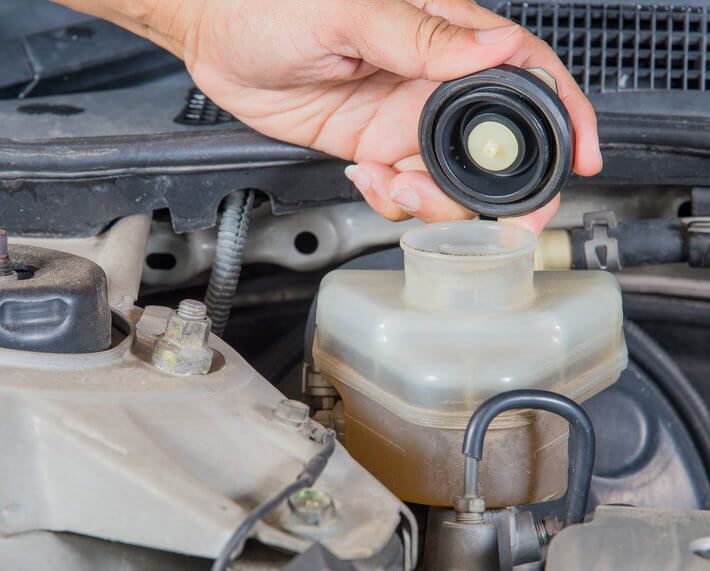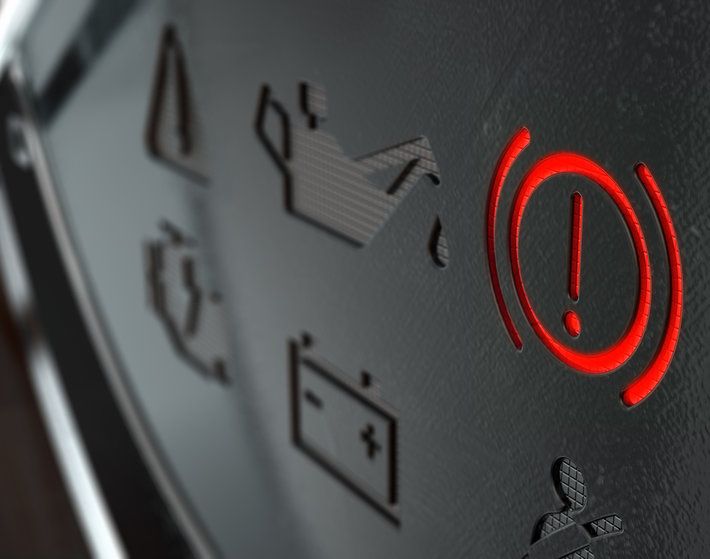Low on motor oil? Running out of windshield wiper fluid? These two situations are frustrating, but also pretty easy to fix. But a car without brake fluid? That's the stuff of automotive nightmares! “Brake” free from worry. Here's what you need to know about staying on top of your brake fluid to avoid an unsafe driving situation down the road.
First, let’s “brake” it down.
Why is brake fluid important?
Your car’s braking system has four brake rotors. These are what brake pads clamp down on to stop the vehicle. Fortunately, you don’t need four legs to press on four brake pedals at the same time!
That’s because brake fluid applies that pressure for you. It converts your “pressing down on the brake pedal” energy into the force required to squeeze all four brake rotors. Which—you guessed it—stops your car in mere seconds.
Look for signs it's time for a brake fluid change.
When should you change your brake fluid?
Knowing how brake fluid works really highlights how important it is, right? Here's when it’s time to take a closer look:
- Press: Do you find yourself pressing the brake pedal all the way, or almost all the way, to the floor of your car? There could be several causes for this. The likeliest cause is low brake fluid.
- Pump: Are you pressing the brake pedal two or more times to bring your car to a halt? The likely culprit is, again, low brake fluid.
- Peek: Is your dashboard brake light on? Is there the tell-tale sign of a brake fluid leak under your car? The spot will probably be clear to brown and slick. Also, check your owner's manual for placement of your brake fluid reservoir under the hood. Low brake fluid in the reservoir (at or below the “MIN” or “minimum” line) can point toward braking issues.
Did you answer “yes” to any of those questions? If so, it’s time to check your brake fluid and stop by for a brake check.
Give yourself a “brake!”
When else might you need a brake fluid check?
If you feel as though you’ve been neglecting your brake fluid, don’t be too hard on yourself. There's a lot of information out there. Should you replace your brake fluid every 20,000 miles? Every two years? Once per decade? To cut through the confusion:
- Review your owner’s manual. This is the best place to start to learn more about your vehicle's recommended maintenance schedule.
- Trust your gut. No one knows your car as well as you do. If you begin to suspect your brakes aren’t responding the way they should, perhaps because of brake fluid problems, take action.
- Consult with a professional. Braking performance is serious business. Treat it that way by bringing your concerns to your nearest Firestone Complete Auto Care. We’re in the business of ensuring good braking performance.
The simple truth is, taking care of your brake fluid won't “brake” the bank. Stop by your nearest Firestone Complete Auto Care for a brake fluid check and replacement, if needed. Your technician will be able to advise you based on your vehicle type, climate, and driving style.



